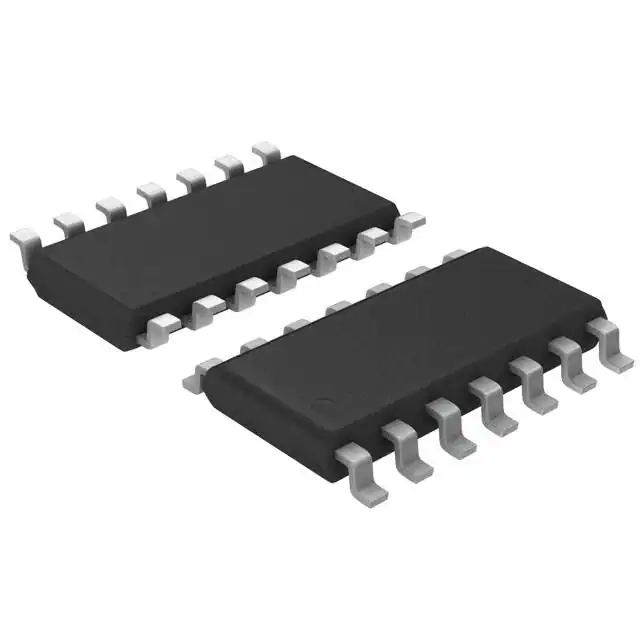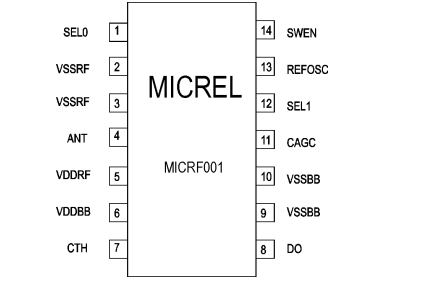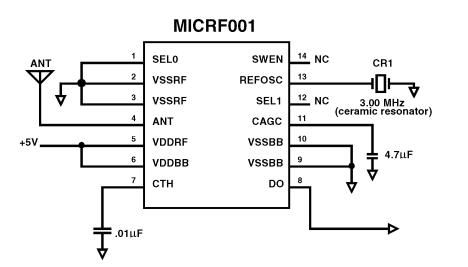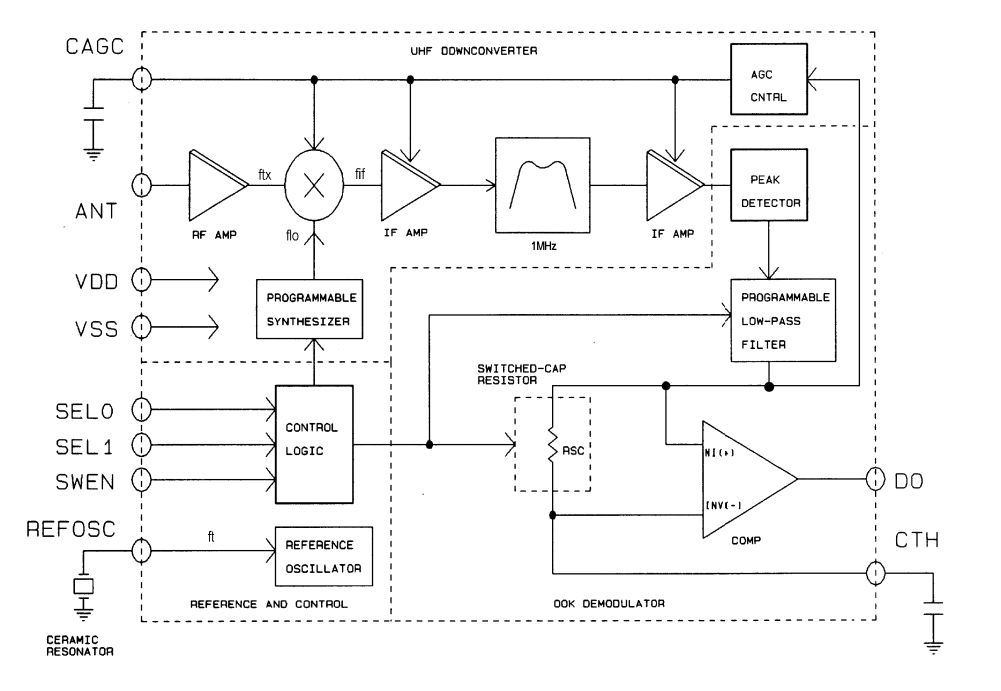
MICRF001 is a single-chip OOK (ON-OFF Keyed) receiver IC for remote wireless applications using Micrel's latest QwikRadiotm technology. The device is a true "antenna in, data out" monolithic device. All RF and IF tuning is done automatically within the IC, which eliminates manual tuning and reduces production costs.
Pin Configuration (DIP and SOIC)

The receiver is fully integrated. The result is a high-capacity wireless application solution with high reliability and extremely low cost. Because MICRF001 is a true single chip radio receiver, it is very easy to apply, minimizes design and production costs, and reduces time to market. MICRF001 uses a novel architecture that allows the receiver to demodulate signals over a wide RF band, eliminating the need for manual tuning. This also greatly relaxes the frequency accuracy and stability requirements for transmitters, allowing MICRF001 to be compatible with SAW-based and LC-based transmitters.
Typical Operating Circuit

The sensitivity and selectivity of the receiver is sufficient to provide low bit error rates for decoding ranges over 100m, matching the performance of other more expensive solutions. All tuning and calibration is done on the chip via low-cost ceramic resonators or externally supplied reference clocks.
The initial tolerance required for ceramic resonators or external clocks is a modest ±0.5%. MICRF001's performance is insensitive to the data modulation duty ratio. MICRF001 can be used with encoding schemes such as Manchester or 33/66% PWM. All post-detection (demodulator) data filtering is provided on MICRF001, so there is no need to design an external filter. The user can externally select any of the four filter bandwidths. Binary steps with bandwidth ranging from 0.6kHz to 4.8kHz
Block Diagram
